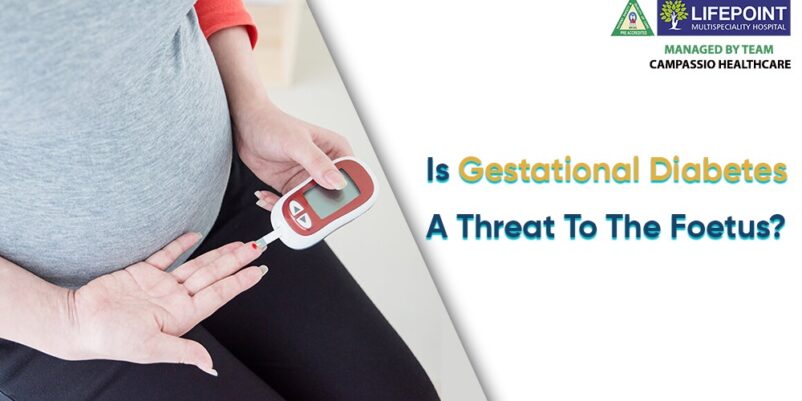Gestational Diabetes refers to a condition in women during pregnancy with increased blood glucose levels. It is a form of diabetes that is diagnosed for the first time in gestation or in pregnancy. If left untreated, these elevated blood glucose levels may cause adverse effects to both mother and the foetus.
There have been cases where women with GDM (Gestational Diabetes Mellitus) have had healthy pregnancies and delivered healthy babies. But if the blood sugar level becomes too high it may cause the odds of complications in pregnancy. Hence, it is of utmost prime to keep these sugar levels in check or under control.
What are its Types?
There are basically two types of GDM – class A1 and class A2. Class A1 can be managed by controlled eating, a healthy lifestyle, regular exercise, and staying fit. On the other hand, Class A2 is a form of GDM which requires medication.
Do I have GDM?
This is a common question that arises soon after a woman enters the pregnancy phase. During your prenatal check-ups, your doctor accesses your risk for GDM. If you are at higher risk, you will have a blood sugar test for GDM. If the test is negative, a repeated test will be conducted at about weeks 24-28.
Your doctor might also order a glucose test wherein you don’t have to fast. If negative you will be monitored at later stages of pregnancy, if found at higher risk; a further oral glucose test is conducted. In Oral Glucose Test, you fast for a certain time and give the test. These are basically the type of tests ordered by your doctor to check for GDM cases during pregnancy.
What are its Symptoms?
- Fatigue
- Frequent urge of urination.
- Unusual Thirst.
- Overweight
- UTI
- Repeated vaginal, bladder or skin infections
How GDM will affect your baby?
- Large baby– The higher glucose level enters baby’s bloodstream resulting in more birth weight in babies.
- Premature Baby- In certain cases due to high glucose level in baby, the baby might gain too much of weight. Hence, doctors suggest preterm delivery
- Jaundice in babies which causes yellowing of their skin.
- Breathing issues- respiratory distress syndrome is observed in such babies and extra care is given until their lungs become more mature.
- Low blood sugar- As their insulin production is high.
Later in life, such babies are potent to Diabetes and Obesity. So, a mother needs to take utmost care to deal with GDM at the earliest.
How can it be treated?
The foremost means of treating Gestational Diabetes is by controlling blood sugar levels.
- Self-monitoring of glucose levels. In the market, many glucose test kits are available by which one can keep a track of their sugar levels during pregnancy.
- If necessary, Insulin therapy might be suggested by the doctors.
- Staying fit.
- A healthy diet and exercise management.
Should I be afraid?
If GDM is diagnosed at an earlier stage and treated effectively, there is a very little risk of odds or complications in a pregnancy. In such cases, women with GDM can deliver healthy babies and diabetes disappears after delivery.

